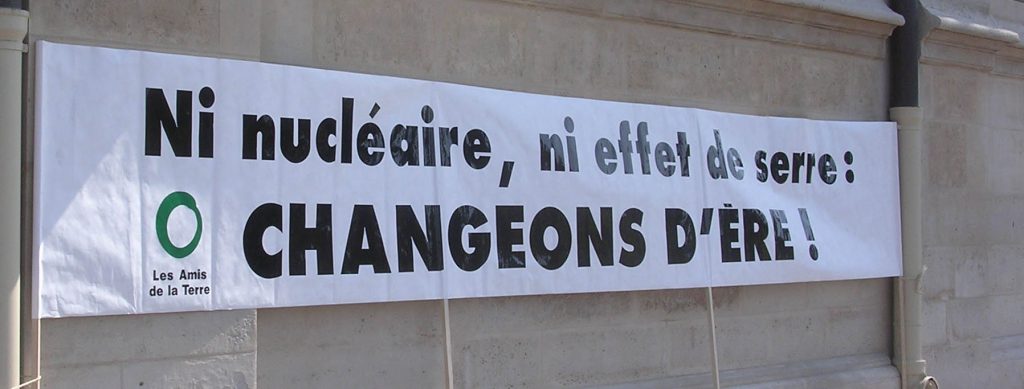Brussels / Sofia, 10 December 2007 – Environmental organizations Greenpeace, Friends of the Earth Europe, Urgewald, Bankwatch, WISE and the Bulgarian NGO coalition BeleNE! have condemned today the European Commission’s favourable opinion on the controversial Belene nuclear power project (NPP) in Bulgaria.
Jan Haverkamp, Greenpeace EU nuclear energy expert commented: “Despite all the warnings by environmentalists and nuclear experts, the Commission has opened the possibility for public funding to a reactor that puts European citizens at risk. This is a disgrace.”
Under the Euratom Treaty, the European Commission is obliged to issue a non-binding opinion on every nuclear project within the EU. A favourable view from the Commission on Belene clears the way for Bulgaria to apply for loans from public institutions like Euratom and the European Investment Bank.
Two weeks ago, the independent nuclear expert Dr. Gueorgui Kastchiev presented a list of concerns regarding the Belene NPP to the European Commission. “The Belene project poses intolerable safety and environmental risks,” says Kastchiev. Among the problems cited by Dr. Kastchiev are design problems, the lack of operational experience with the planned reactor type, the lack of qualified personnel and effective controls, the lack of a strategy to deal with spent fuel and rampant corruption in the energy sector. “If one factors in the high seismic risks of the location and the low level of the nuclear safety culture in Bulgaria, it can only lead to one conclusion: This project must be stopped as soon as possible,” he says.
“Last Friday’s decision shows that the Commission neither listens to reason nor the voices of its citizens when it comes to nuclear power”, says Heffa Schücking of the German environment organization Urgewald. “We are determined to block public money flowing into projects such as Belene, which will endanger the health and safety of millions of people,” says Schücking. “The Belene NPP has been shunned by commercial banks and it would be a scandal if tax-payers money will be used to complete it.” she adds.
Daniel Meijers from Friends of the Earth Europe warned of the precedent this decision might be creating: “Euratom has not provided a loan for the construction of new reactors in more than 20 years, and this would be the very first time it supports the construction of Russian reactors within the EU.”
Petko Kovachev of the Bulgarian coalition of environmental NGOs BeleNE!, concluded: “Supporting projects like Belene is like playing Russian roulette. Over the past two weeks, some 30,000 Europeans have addressed their concerns to Commissioner Piebalgs. We will continue protesting against this dangerous project.”
***
Notes to the Editor:
- The Commission’s opinion on Belene was announced on 7 December 2007.
- The construction of the Belene nuclear power station started in 1985. From the beginning, there was controversy around the project because of its seismic risk – a large earthquake in 1977 killed over 120 people only 14 km from the planned site. The project was halted in 1991, and finally dropped in 1992 because of environmental and economic risks. In 2003, however, the Bulgarian government restarted the project and in 2006, it decided to build two new reactors at the Belene site, with no previous operational record globally. The Environmental Impact Assessment report was finished in November 2004 \u2013 long before the reactor type was decided on -and has since then been subject to court procedures. The project is expected to cost at least 7 billion Euros. In 2006, Deutsche Bank, UniCredit and ten other large commercial banks, turned down applications to finance Belene.
- Dr. Gueorgui Kastchiev was one of the managers of the Kozloduy nuclear power station from 1972 to 1989, and was head of the Bulgarian Nuclear Safety Authority from 1997 to 2001. He currently holds a position as Senior Nuclear Physicist at the Institute of Risk Research in Vienna.
- On November 23, 2007 Dr. Kastchiev and several NGO representatives met with members of Commissioner Piebalgs’ and Dimas’ cabinets to discuss Belene.






